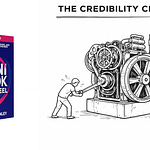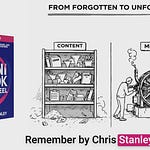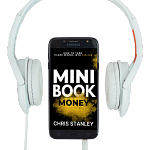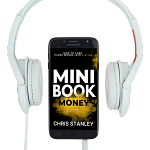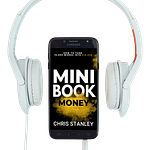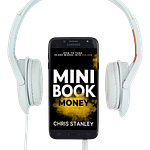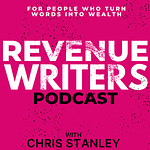Too many authors start writing before they know what they’re writing toward.
In this episode, Chris Stanley breaks down the W and E in his Power Promise framework, Words and Expectations, and explains why your title and subtitle should be locked in before you write a single word.
You’ll learn:
Why a title isn’t a label, it’s a contract
The 3 types of nonfiction book titles that actually work
How the wrong title can wreck your writing focus
Why your book needs to hook, not explain
If you're stuck spinning on Chapter 1 or unsure how to keep your book focused, this episode gives you the clarity to start strong.
Next episode: how to craft a subtitle that actually sells.
TRANSCRIPT
Hey, welcome back, revenue Writers To The Revenue Writers Podcast. I am your host, Chris Stanley, and I'm super glad to be back with you on my sailboat today as we continue our travels. Uh, but I want to continue this series, um, on building your Power Promise. For most of you, that's gonna be as you're writing your book, but it could be for whatever your next project is.
But a Power Promise is built on number one p. Uh, your problem, uh, that you're addressing and trying to solve, uh, o is your offer of a solution, which is what we talked about last time. And now I want to talk about the words and expectations, which is the W and the E. And I'll try to get 'em both in, in this episode.
It might need to go to two. We'll see how it goes. Um, but when you're starting a book, the words and expectations are set by your title and your subtitle. Um, because what people read immediately on a book other than your cover is, okay, the title, what is this, uh, book about? And so. Solidifying your title before you ever write a word is so important because you're setting that expectation.
You're using words to let people know, Hey, this is what this book's gonna be about. And if you don't do that before you start writing, you could write the wrong thing. You could just write a whole different book and then you slap a title on it and it's like, it doesn't match the promise, right? The power promise you gave you, it's, it doesn't match the expectation in the words that you use.
Um, and so it's important to set that in the beginning because it makes your writing so much more laser focused. So let's talk about titles. How do you choose a good title? And, um, first off, there are three different types of titles I tend to to choose from. Uh, number one is one word titles. I mean, if you can name a book, ask, like that is a very famous book.
Ask or outliers. You know, those are amazing book titles. Blink by Malcolm Gladwell, margin by Richard Swen, like epic, right? That's great. If you have one word like that, be ready to deliver, uh, on that super promise because if it clearly articulates, or at least opens up that curiosity loop, super important because that's the job of the title, is to hook the reader, to make 'em curious.
Uh, the second type of title I like is framework titles. So this is what I rely a lot on in my mini book, uh, series. So mini book marketing, mini book model, right? These are frameworks. I also had, um, you know, uh, other books that I've loved and read, like Atomic Habits. It's a framework that is the name of James Clear's core framework.
Uh, another one could be another type of title. The other third one is brand titles. So maybe you're trying to establish a brand or a new product line. And so, you know, Donald Miller did business Made Simple. What was his company name? Business made Simple. So we wrote a book with the same title. So maybe you're going for a brand recognition.
And so those are the three main types of titles I like to think about using. And number one, one word titles, number two, framework titles, and number three, brand titles. And what it will do is eliminate the overwhelm. If you just focus on these three, it, your book can't be anything. Can't be titled anything.
It has to be one of these three. Um, now framework titles can be an awesome launching point for a new business or a new product. Um, even if you don't have your own framework, you can create one. So if you were writing a book, um, and you have steps that you're going to teach somebody how to do it, you could come up with a name for that and that be the framework that you name the book after.
Okay? So that's kind of how you choose a title, but keep in mind a title. Does not need to perfectly describe what you're going to teach. It needs to hook the reader. It needs to drive curiosity. It is the headline in copy, right? So hook 'em, bring them deeper. One word, a framework or brand. Either one of those make great titles to a book.
And then I'm approaching my five minute marks where we're gonna have to do subtitle in the next episode.





